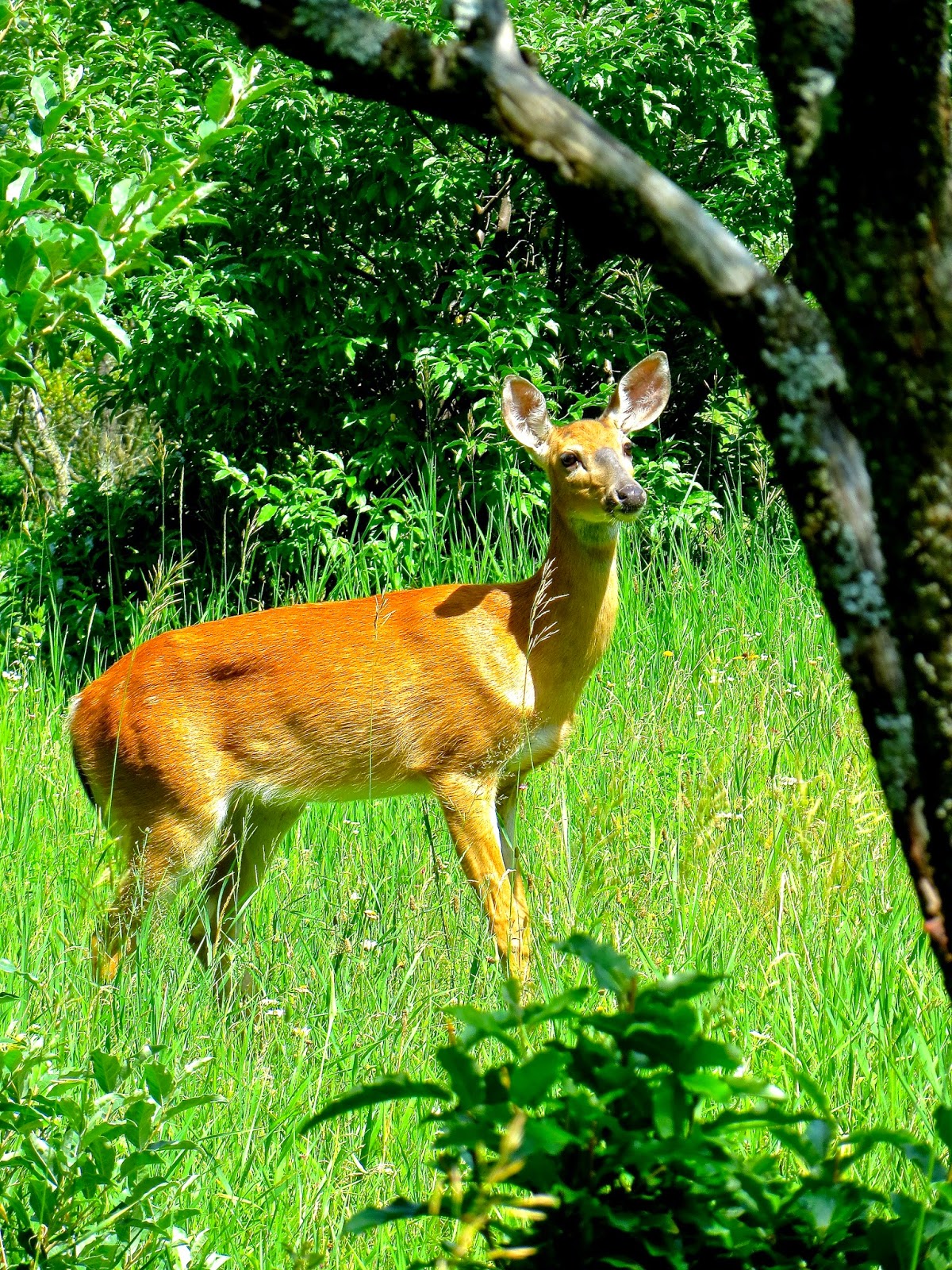On my walk today, I saw a new bird. He's not rare, but he was my first Chipping Sparrow. (Someone please correct me it that's incorrect). I didn't get a good look at him in real life, but I took a few shots anyway. When I got home and tinkered with the photos (cropping and sharpening), I was glad to find him fairly quickly at the fantastic Cornell Lab of Ornithology.
 |
| Chipping Sparrow |
It's only a small exaggeration to say I cannot compare little birds to big birds without remembering Richard Wilbur's magnificent poem, "Still, Citizen Sparrow." Today I've tweaked my comments from February of 2010. They're still long and imperfect, so read only as much as you want. But I hope you'll read or re-read the poem. Otherwise, you'll miss your chance to be one of Noah's sons, dutiful, noble and glorious, a survivor on Mt. Ararat.
http://www.writing.upenn.edu/~afilreis/88v/wilbur-sparrow.html
Although I predict that several of Richard Wilbur's poems are canon-fodder (that is, immortal--I couldn't resist playing with Falstaff's words), I especially admire "Still, Citizen Sparrow," which offers the scavenging vulture as a hero in whose shadow mere sparrows are told to be still.
In "Still" as the opening word, there is more muscularity of language, more purposeful ambiguity and layered meaning, than I find in many entire poems. First and foremost, I hear "Still" as "Be still," an instruction to the chattering sparrows, who are that most mediocre of things, "citizens." Shut up and behold the hovering vulture as he lords (Lords?) it over trivial you with his necessary, purgative work.
However, that meaning of "Still" doesn't hold up grammatically; we'd need a semicolon or period after the command for "citizen sparrow" to be still. So the literal and grammatically sensible meaning is probably, "Even so, citizen sparrow . . . ." It's an introduction to the more elaborate argument that follows. It's as if the sparrows, just before the poem begins, have proposed their own cuteness along with the vulture's grotesqueness, whereupon Wilbur's speaker is offering a counter-argument. "Oh yeah? Well, consider this about Mr. Vulture, whom you call ugly . . . ."
I won't continue with this kind of attention to detail or I'll never finish. But do, please, take time to admire the parts you consider to be gems. I'll be surprised if you don't find some. For example:
". . . lumber again to air / Over the rotten office . . . ." What could better capture the rhythm of the buzzard's flight than "lumber" or the brutal accuracy of its mission than "rotten office"? Remove the carcass in order to eat it: ". . . bear / The carrion ballast up . . . ." And because the vulture's the hero who does the dirty work, he is able to "lie cruising" at the "Tip of the sky."
". . . the frightfully free // The naked-headed one . . . ." Maybe he's "frightfully" free because what he does seems, or is, "unnatural." It's not just garbage collection; it's also something like cannibalism, yet by virtue of this shredding and munching, the hero "mocks mutability." Death? He laughs at it. He casually eats Death and cruises on.
". . . childheart . . . bedlam hours . . . slam of his hammer . . . " All of those am sounds are verbal sledge hammers against the chirpy multitudes of sparrows, who, in their small lives, might protest, "Oh, Buzzard, stop preparing for heroism--we sparrows can't sleep (or chatter) with the slam of your hammer going on and on and on."
And these bits of elegance speak for themselves, I think:
How high and weary it was . . .
He rocked his only world, and everyone's.
Forgive the hero, you who would have died
Gladly with all you knew . . .
Wilbur proclaims that sparrows don't know much. They haven't "rocked" anything; they know nothing of "high and weary" labor that purifies and saves--or the soaring that goes with the work. Trash collectors and undertakers probably know a lot more than most of us. Odd as it may seem, the poem is an apotheosis of those who tidy up after messes, including corpses. And there we find the vulture glorified as the lofty, silent one, the solitary Noah among us nattering nabobs of sparrow-hood..
 |
| Turkey Vulture |
As something of a skeptic about heroes, I don't know how much I agree with Wilbur's argument, but I admire its creative logic and presentation, the power of its imperatives ("Do this; do that"), the poem's passion bucking against the constraints of its rhymed and metered formality, just as its argument bucks against the expectations of most of us, who might like a sparrow in the back yard rather than a buzzard, never mind that the sparrow makes messes while the buzzard cleans them up, flies away and soars again, looking for more. He's big and other, not at all a citizen like us.
http://www.writing.upenn.edu/~afilreis/88v/wilbur-sparrow.html
 |
| Black Vulture |







